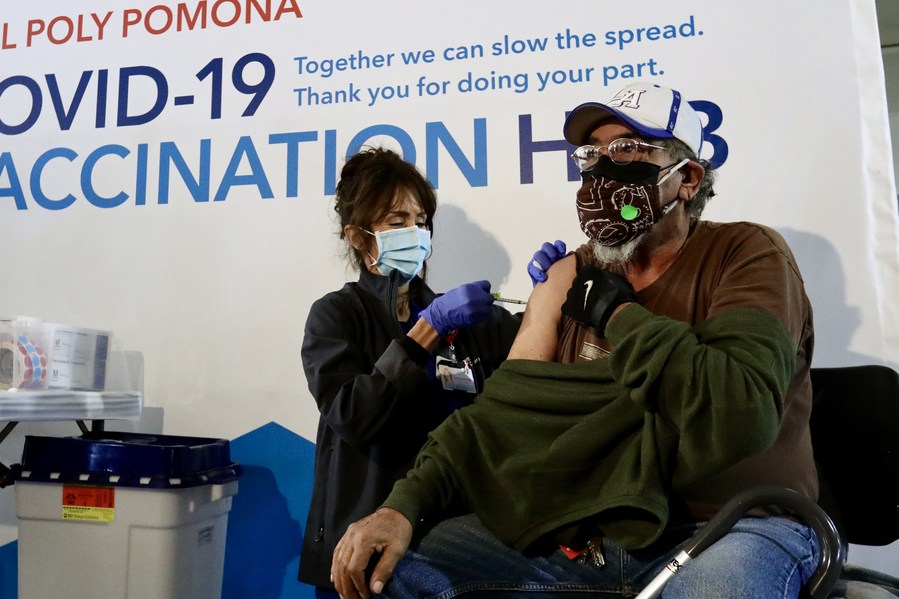With Biden's 1.9-trillion relief plan aimed at recovery, long-term challenges remain


LONG-TERM CHALLENGES
Amid widespread COVID-19 shutdowns in March and April last year, 22 million Americans lost their jobs. Despite some improvement, the US labor market has seen its recovery stalled in recent months amid surging COVID-19 cases.
US employers added just 49,000 jobs this January, after slashing a downwardly revised 227,000 jobs in December, according to a monthly employment report by the Labor Department. Biden said the latest data showed over 10 million people remain out of work.
US Treasury Secretary Janet Yellen said Sunday that the country could return to full employment in 2022 if it enacts Biden's relief bill, citing an analysis from the Congressional Budget Office that showed the unemployment rate would stay elevated for years to come without additional support.
Commenting on the 1.9-trillion relief plan, Jeffrey Sachs, economics professor at Columbia University and senior United Nations advisor, told Xinhua via email that it is a "bold program" to control the pandemic and reflate the economy.
"If the vaccine distribution and public health measures are well carried out, and if the new viral variants do not disrupt the suppression of the epidemic, the policy measures would lead to a very robust recovery in the second half of 2021," Sachs said.
Nonetheless, he said the United States will need more "fundamental policy changes" to address long term needs: infrastructure, climate change, innovation and inequality. "That long-term recovery package still lies ahead," said the renowned economist.
In the Washington Post article, Summers said that if Biden's bill is enacted, Congress will have committed 15 percent of the gross domestic product with essentially no increase in public investment to address such challenges as economic injustice and slow growth.
Committee for a Responsible Federal Budget, a Washington, D.C.-based nonpartisan watchdog group, said in a Wednesday statement that "borrowing is not free and comes with risks," urging elected officials to be "good stewards" of the money they borrow.
"Politicians should not be taking advantage of this opportunity to buy off voters, pursue their long-term policy agenda, test the limits of the economy, or set up a series of future budget showdowns," the group said.
"Taking this crisis seriously means spending money wisely -- especially when we're borrowing it from those too young to have a vote," it added.
























